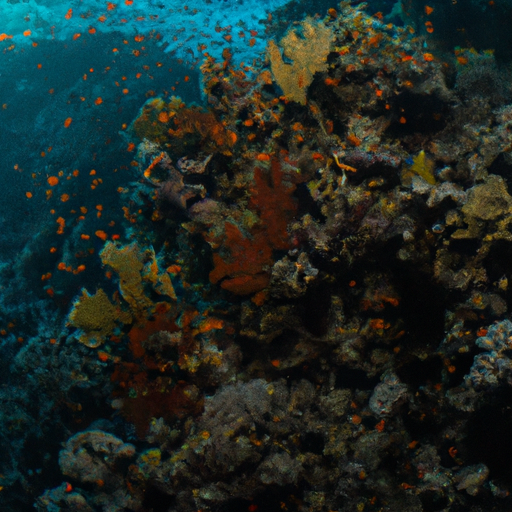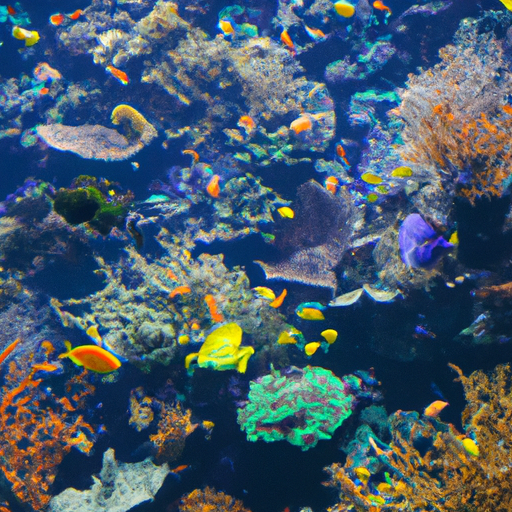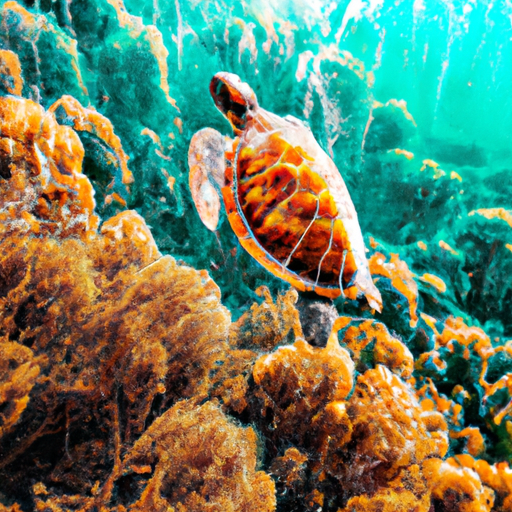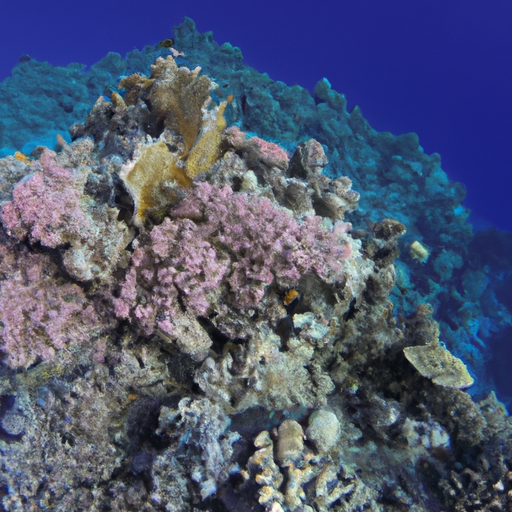
The Impact of Human Activities on Marine Life: Why Conservation Efforts Are Critical
The oceans are home to a rich and diverse array of marine life, from tiny plankton to majestic whales. However, human activities have had a significant impact on these delicate ecosystems, posing threats to marine life and the overall health of our oceans. This is why conservation efforts are absolutely critical.
Protecting marine life is of utmost importance for several reasons. Firstly, many species rely on the oceans for their survival. Marine ecosystems provide food, shelter, and breeding grounds for countless organisms, many of which are essential to the balance of the entire ecosystem. By conserving marine life, we help ensure the continued existence of these species and the overall stability of the oceanic environment.
Furthermore, marine life plays a vital role in regulating the Earth’s climate. Ocean plants, such as phytoplankton, absorb carbon dioxide from the atmosphere through photosynthesis, helping to mitigate the effects of global warming. Additionally, the ocean’s vast capacity to absorb heat helps to distribute warmth around the planet, influencing weather patterns and temperature regulation. By protecting marine life, we can help preserve these critical climate-regulating processes.
Besides the ecological importance, marine life also holds immense economic value. Industries such as tourism, fishing, and pharmaceuticals heavily rely on healthy oceans and thriving marine ecosystems. Tourists flock to coastal areas to experience the beauty of marine life, supporting local economies and livelihoods. The fishing industry, in particular, sustains the livelihoods of millions around the world. By protecting marine life, we protect these valuable resources and ensure sustainable economic development.
Conservation efforts are crucial in mitigating the negative impacts of human activities on marine life. Overfishing, pollution, habitat destruction, and climate change are some of the major threats faced by marine ecosystems. Through measures such as the establishment of marine protected areas, sustainable fishing practices, and reducing pollution, we can help minimize these threats and promote the recovery of marine life.
In conclusion, protecting marine life through conservation efforts is of paramount importance. By safeguarding the diverse range of species and habitats found in our oceans, we not only ensure the survival of these organisms but also safeguard the ecosystem services they provide. From climate regulation to economic sustainability, the benefits of marine life conservation cannot be overstated. It is our collective responsibility to take action and protect these invaluable assets for future generations.
Protecting Marine Biodiversity: The Importance of Preserving Ecosystems
Protecting marine life is of utmost importance in our efforts to preserve marine biodiversity. Marine ecosystems are home to a wide range of plants, animals, and microorganisms, all of which play vital roles in maintaining the health and balance of our oceans.
Conservation efforts aimed at protecting marine life involve various strategies and initiatives. One important aspect is the establishment of marine protected areas (MPAs), which are designated areas where specific activities, such as fishing or mining, are restricted or prohibited. MPAs serve as sanctuaries for marine species, allowing them to thrive without human interference. These areas provide a safe haven for endangered species, allowing their populations to recover and ensuring the conservation of crucial habitats.
In addition to MPAs, efforts to protect marine life also involve sustainable fishing practices. Overfishing can have devastating effects on marine ecosystems, leading to the depletion of species and disrupting the natural balance of marine food webs. By implementing regulations such as size and catch limits, seasonal closures, and gear restrictions, we can ensure that fishing activities are carried out in a way that minimizes harm to marine life and supports the long-term sustainability of fisheries.
Educational campaigns and awareness-raising initiatives are also essential in protecting marine life. By educating the public about the importance of marine biodiversity and the threats it faces, we can inspire individuals to take action and make more sustainable choices. This can range from reducing single-use plastics and supporting sustainable seafood choices to participating in beach clean-ups and supporting organizations dedicated to marine conservation.
Lastly, collaboration between governments, organizations, researchers, and local communities is crucial in protecting marine life. By working together, we can share knowledge, resources, and best practices, as well as develop innovative solutions to address the challenges facing our marine ecosystems.
Protecting marine life is not just about preserving individual species; it is about safeguarding the delicate balance of entire ecosystems. Every species has a role to play, whether it is as a predator, prey, or a contributor to nutrient cycling. By recognizing the importance of marine life and taking proactive steps to conserve it, we can ensure the health and survival of our oceans for future generations.
Sustainable Fishing Practices: Balancing Economic Needs with the Conservation of Marine Life
Protecting marine life is an essential aspect of sustainable fishing practices. As humans heavily rely on the oceans for food, it is crucial to strike a balance between meeting economic needs and ensuring the conservation of marine ecosystems.
Conservation efforts play a pivotal role in protecting marine life. One significant aspect is the establishment of marine protected areas (MPAs). These designated zones restrict or prohibit fishing activities to allow for the recovery and preservation of fish populations and their habitats. MPAs not only safeguard marine species but also contribute to the overall health of the oceans.
Another crucial conservation effort is the implementation of fishing quotas and regulations. These measures facilitate the management of fish stocks, preventing overfishing and ensuring their long-term sustainability. By setting limits on the amount of fish that can be caught, fishing practices can be controlled to avoid depleting populations and disrupting the delicate balance of marine ecosystems.
Adopting sustainable fishing techniques is another way to protect marine life. This includes promoting selective fishing methods, such as using specific gear to target certain species and sizes while avoiding unintended bycatch. By minimizing the capture of non-target species, these practices help reduce the impact on marine biodiversity.
Education and awareness also play a vital role in conservation efforts. By promoting public understanding of the importance of marine life and the need for sustainable fishing practices, individuals can make informed choices and support initiatives aimed at protecting our oceans. It is crucial to educate both fishermen and consumers about sustainable seafood options, empowering them to make responsible decisions that benefit marine ecosystems.
Collaboration between governments, fishing industries, conservation organizations, and scientists is essential for effective marine life conservation. By working together, stakeholders can share knowledge, develop innovative solutions, and implement policies and practices that prioritize the protection of marine biodiversity.
In conclusion, protecting marine life through conservation efforts is vital for sustainable fishing practices. Through the establishment of marine protected areas, fishing quotas and regulations, sustainable fishing techniques, education, and collaboration, we can strike a balance between economic needs and the long-term conservation of marine ecosystems. By prioritizing the well-being of our oceans, we ensure the availability of resources for future generations.
Plastic Pollution and Its Devastating Effects on Marine Ecosystems: Urgent Call for Action
Protecting Marine Life: The Importance of Conservation Efforts
Plastic pollution remains one of the most pressing environmental issues of our time, especially when it comes to its devastating effects on marine ecosystems. The alarming increase in plastic waste has led to widespread concern for the well-being of our oceans and the countless species that call it their home. In order to address this crisis, urgent and concerted efforts are required to protect marine life through conservation initiatives.
Marine life, ranging from majestic whales to tiny plankton, plays a vital role in maintaining the balance of our planet’s ecosystems. They provide food and habitat for countless other species and are essential for the overall health of our oceans. However, the alarming levels of plastic pollution pose a significant threat to their survival and well-being.
Conservation efforts aimed at protecting marine life have never been more crucial. This involves not only reducing the production and consumption of single-use plastics but also implementing effective waste management strategies. Recycling and proper disposal of plastic waste are essential steps to prevent it from ending up in our oceans.
Education also plays a vital role in protecting marine life. By raising awareness about the harmful effects of plastic pollution, we can encourage individuals, communities, and businesses to take action. Informing people about alternative, eco-friendly materials and promoting sustainable practices are key components of successful conservation efforts.
Furthermore, the establishment of marine protected areas (MPAs) is essential for safeguarding vulnerable marine ecosystems and the species within them. MPAs serve as safe havens for marine life, where human activities are limited or strictly regulated. These protected areas allow marine species to thrive and recover from the damages caused by plastic pollution and other human-induced threats.
Collaboration among governments, non-governmental organizations, and the private sector is crucial in effectively conserving marine life. By working together and implementing comprehensive strategies, we can ensure the long-term survival and health of our oceans and the incredible biodiversity they support.
In conclusion, protecting marine life through conservation efforts is of paramount importance in the face of increasing plastic pollution. By reducing plastic waste, implementing effective waste management, raising awareness, and establishing marine protected areas, we can mitigate the devastating effects of plastic pollution and safeguard our oceans for future generations.



